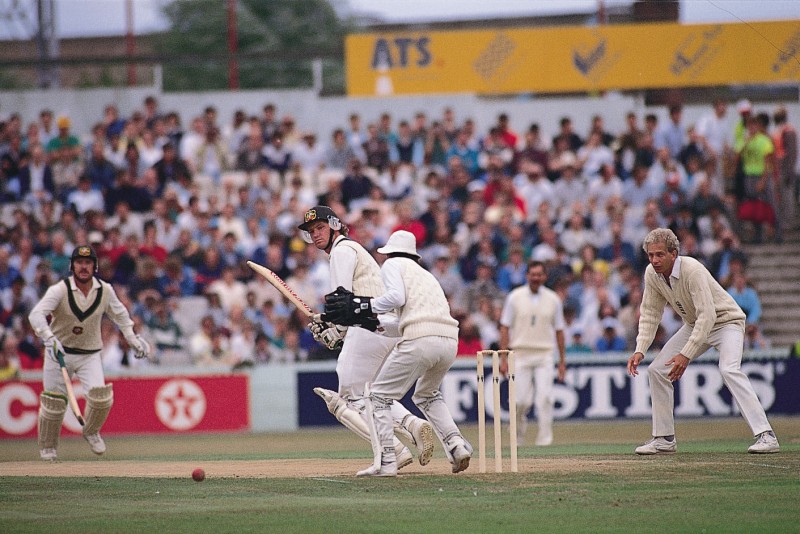
The job of making rules for international cricket belongs to the Marylebone Cricket Club i.e. MCC. Based on the suggestions of the MCC, the International Cricket Council (ICC) enforces the rules. The MCC has once again suggested changes in the rules and many of the rules of international cricket will be changed before the T20 World Cup 2022 to be held in Australia on October 1, 2022. There are also some rules, which were implemented in October 2017, they have been changed. The MCC has announced amendments to the rules of international cricket, but these will be implemented only after October. However, in the intervening time, the relevant information will be updated by the MCC to help in the training of umpires and officials globally. The change is aimed at shaping the game of cricket the way it should be played.
Law 1- Replacement of players:-
According to a new clause law 1.3, the replacement player should be treated as if he were the same player whom he replaced, regardless of any restrictions or wickets taken by the player in that match.
Law 18- The new batsman will come to the crease:-
Firstly trialled in The Hundred League by the England and Wales Cricket Board i.e. ECB at the suggestion of the MCC, law 18.11 has now been changed, making the new batsman come on strike to face the next ball when a batsman is caught out anywhere. (Until it's the end of an over).
Law 20.4.2.12 - Dead Ball:-
The new edition of Cricket's Law has seen many changes in dead ball law, the most important of which is to call the dead ball. If any side is harmed by any person, animal or object on the field of the match, it will be termed as a dead ball. From the pitch invader to the dog running on the field, sometimes there is external interference – if so, and it has a physical impact on the game, the umpires will call and signal the dead ball.
Law 21.4- Attempt to run out by the bowler:-
If a bowler throws the ball in an attempt to run out the striker before entering his delivery stride, it will now be a dead ball. It's an extremely rare Scenario, which has so far been called a no-ball.
Law 22.1- Wide Judge:-
In modern sports, batsmen move around the crease much more than before the ball is thrown by the ball. It was felt unfair that a delivery could be called 'wide' if it passed through the spot where the batsman stood, as the bowler entered his delivery stride. Therefore, law 22.1 has been amended so that a wide is applicable where the batsman stands, where the striker stands at any point, since the bowler has started the run-up and which the striker would have also had in a normal batting position.
Law 25.8- Right to play the ball to the striker:-
Even if the ball falls off the pitch, the new law allows the 25.8 strikers to play the ball, as long as some part of his bat or person remains inside the pitch. If they go beyond that, the umpire will call and signal the dead ball. Any ball that will force them to leave the pitch in exchange for the batsman will also be called a no-ball.
Laws 27.4 and 28.6 - Unfair Movement of the Fielding Side:-
Until now, any member of the fielding team who walked wrongly was punished only with a 'dead ball' and potentially a perfectly good shot was cancelled by the batsman. Given that this work is unfair and done deliberately, now it will award 5 penalty runs to the batting team.
Law 38.3- Exit of non-strikers:-
Law 41.16 provides that the non-striker has been transferred from Law 41 (inappropriate play) to Law 38 (run out). The wording of the law remains the same. Just like R Ashwin dismissed Jos Buttler at a non-strike end in an IPL match. Now it is fully valid.
Law 41.3 - Ban on spitting:
When cricket resumed after the start of Corona, playing conditions were written in most forms of the game, stating that saliva or spit (saliva) on the ball is no longer allowed. MCC's research found that it had little or no effect on the number of swing bowlers received. The players were using sweat to shine the ball and it was equally effective. The new laws will not allow the use of saliva on the ball, as players use sugary products to apply their saliva to the ball. In such a situation, saliva will be used in the same way as any other inappropriate way of changing the position of the ball.
From cricket to weightlifting championship, women players have brought laurels to India
Punter, saddened by the death of Shane Warne, said, "Everything has changed..."
How did Shane Warne die? Thailand police make big statement on post-mortem report